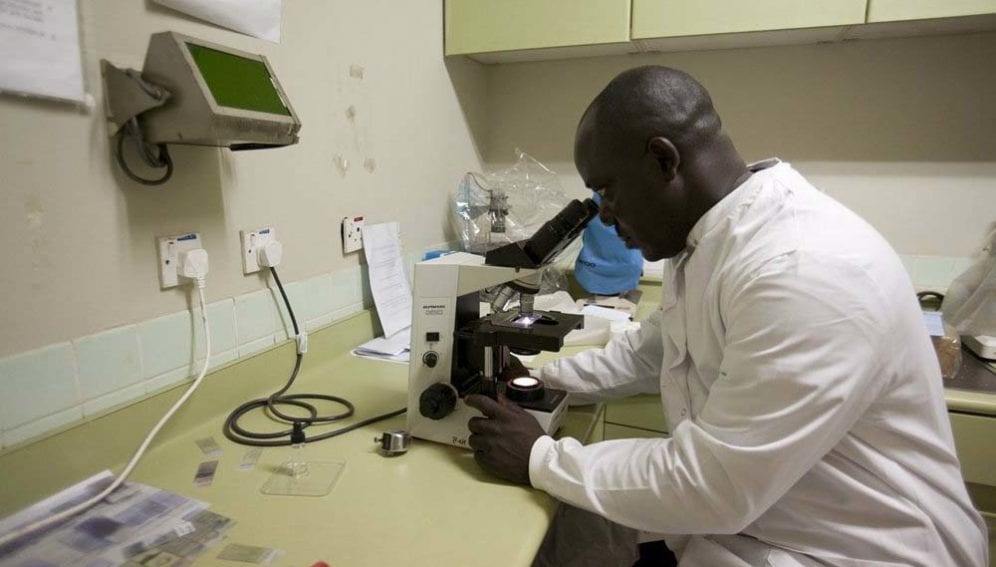Send to a friend
The details you provide on this page will not be used to send unsolicited email, and will not be sold to a 3rd party. See privacy policy.
Poor nations need a framework to bolster development plans through relevant research, says Heneri Dzinotyiweyi.
There are obvious differences between developed and developing countries in the extent to which science policy and governance contribute to progress, and in how successfully this has been done. But how can we best go about using science to ‘invent the future’?
There are several issues that we, as scientists, easily agree on and then expect them to become policy. But, on the contrary, they tend to get ignored by the time policymakers take their own position. Often, in developing countries, issues end up not being adopted or take a long time to become part of policy — issues such as the level of budgetary support for scientific research or meaningful support for renewable energy.
I believe this is largely unintentional. But it does signal the need for an appropriate governance framework to bridge the gap. There is a need to evolve mechanisms that ensure that scientific consensus gets realised through appropriate positive responses by policymakers (at a minimum, the government’s consideration of issues raised by scientists).
Such a framework could range from providing effective arrangements for collaboration between scientists and their governments, to setting up administrative mechanisms to strengthen government understanding of scientific issues — for example, by appointing national science advisors.
Where the latter approach is taken, an advisor’s role must not be confused with overall promotion of science and technology. This cross-cutting task needs to be managed as a sector and, in some countries, is run as a distinct ministry handling science, technology and innovation (ST&I).
Improving science-led policy
So what should we do differently to improve science-based policy, and science policy?
At the national level, I think a closer link between the ST&I sector and national planning policies would help. The goal would be to explicitly include relevant scientific issues in major projects arising from a nation’s development plan — for example those related to construction, energy or infrastructure.
“Even where science-policy links are strong, many countries fail to implement policy that would reinforce these links.”
Heneri Dzinotyiweyi
Where a draft plan fails to find any relevant scientific input — which I am sure must exist — that should be seen as a sign of the plan being incomplete.
This approach would provide a basis for continually searching for those applicable scientific results that can play a significant role in improving the outcome of the national plan. This will not be easy to do, but would certainly provide an exciting challenge for the ST&I sector to address and enhance its links with other sectors.
This is about triggering a chain reaction to integrate ST&I in the development process covering key players. Government would achieve this through commitment to national plan implementation and by seeking to include ST&I in each key project. In addition, companies (public and private) involved in projects would require evidence of ST&I issues being considered; and scientists would seek to highlight results that can inform plan implementation as well as carry out research, especially for long-term projects.
To ensure that the different stakeholders play their part, it would help if governments were to adopt such expectations as a matter of policy.
Implementation breakdown
But even where science-policy links are strong, many countries fail to implement policy that would reinforce these links.
The prospect of successfully implementing a science policy strategy depends on how that strategy interacts with all other sectors of the economy. Very often, what is missing is clarity about those interactions and, by extension, the overall progress they might lead to — and this results in priorities being placed elsewhere.
For instance, some developing world governments have adopted a policy of spending a minimum proportion of their GDP (gross domestic product) — often one per cent — on research and development. But they have done so without addressing the issue of sources of national income and the ability to sustain the required funding.
The biggest challenge comes from most scientists presenting their work as having long-term rather than short-term benefits. Even then, the public often fails to readily understand the perceived long-term benefits. Some of those might even be seen as mere aspirations.
This is an area where international bodies such as UNESCO (the UN Educational, Scientific and Cultural Organization) could help — by offering a template that outlines a structured approach to science policy implementation that explicitly details benefits to be realised over time, including in the short term.
Funding and capacity concerns
But science policy implementation is also about funding, and about ‘brain drain’.
Isolated scientists from the developing world may be offered occasional grants to visit colleagues and research institutions in the developed world — assistance for which I’m thankful and fully supportive. Yet, the net movement of talent will remain in the direction of the developed world until research institutions and universities in the developing world become equipped and operational to a comparable level.
When that happens, not only will developing world institutions become adequate hosts of local scholars but, with globalisation, researchers in the developed world will also have meaningful institutions to interact with in the developing world. This would be a truly balanced globalised platform for science.
Of course, the primary responsibility for improving such institutions lies with developing world governments. But independent sponsors, such as the international development agencies of developed countries, should also bear that goal in mind.
Heneri Dzinotyiweyi, former minister of science and technology development of Zimbabwe, is a consultant on science, technology and innovation policy and development. He can be contacted at [email protected]














